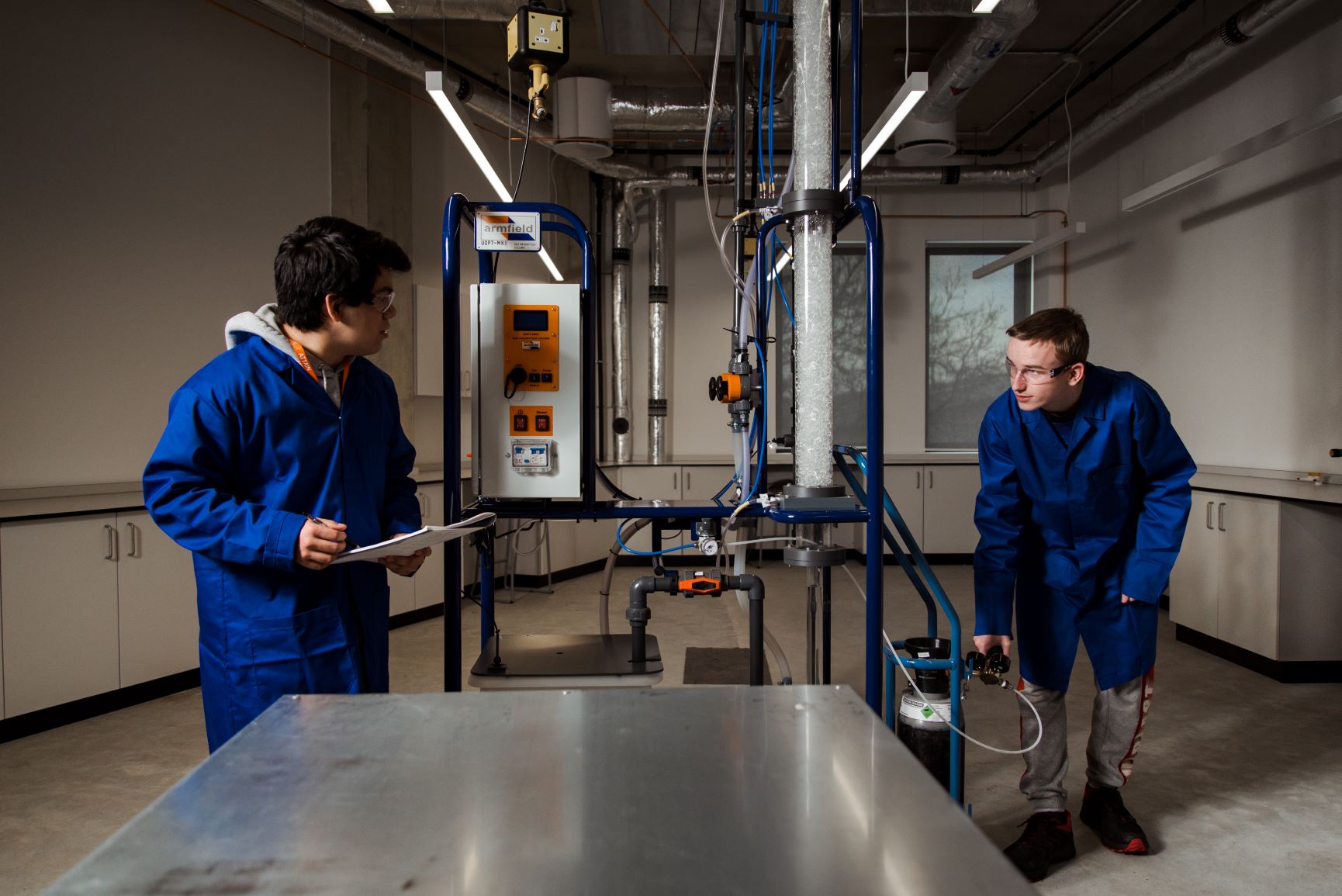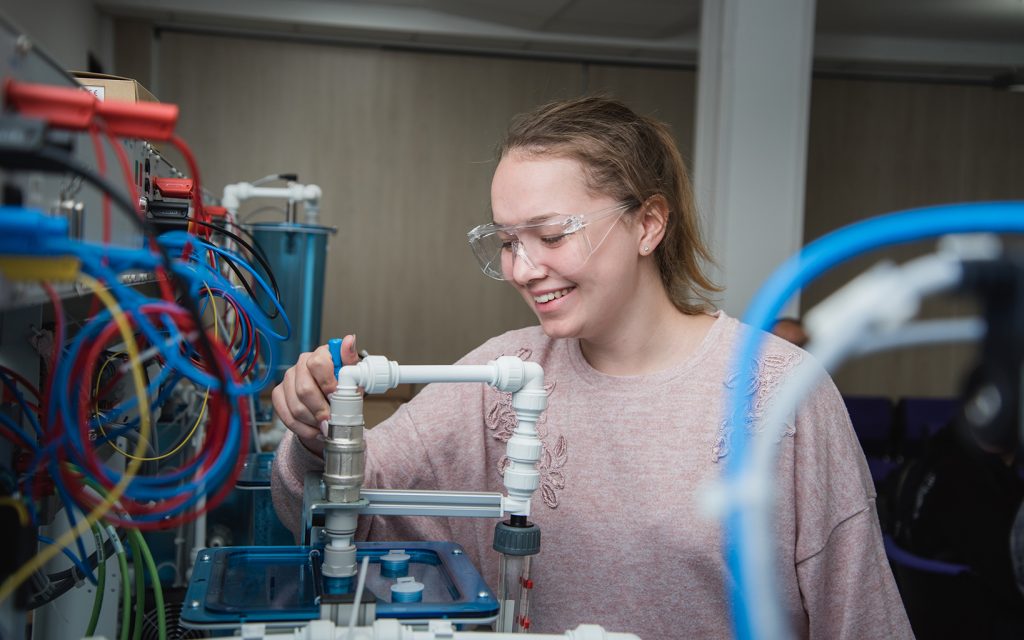by Oliver King, Year 2 Chemical Engineering student (MEng), Canterbury Christ Church University
I am a second year Chemical Engineering student at Canterbury Christ Church University. When applying for university I had an additional decision to make, as well as the decision of what, where and when to study. This was whether to study for a Bachelor of Engineering (BEng) or a Master of Engineering (MEng).
What’s the difference?
A BEng is a bachelor’s in engineering undergraduate programme, lasting for three years or four if you also take a foundation year or placement year. An MEng is a four-year integrated master’s undergraduate programme, for which you then graduate with additional and more specialised skills. The main difference between the two however, is that an accredited MEng meets the minimum educational requirement to become a Chartered Engineer, while the BEng does not.
With a BEng, you can go on to gain incorporated engineer status with growing experience in industry, or you can study an accredited MSc in engineering to qualify as a Chartered Engineer. However, by completing an accredited MEng programme, you are ready to undertake the Initial Professional Development in the workplace (i.e. on-the-job training) to become a Chartered Engineer.
Some of the Pros and Cons
An MEng isn’t the only way to qualify as a Chartered Engineer. There is, of course, the option of taking the BEng and then doing an accredited MSc. So, why choose one over the other?
Both options have their positives and negatives, but the MEng has a lot of additional convenience. With the MEng, you can do 4 years of study at the same university without going through the master’s application process like you would after studying the BEng; as a result, you have cleared all the educational blocks nicely and simply to work towards your CEng (Chartered Engineer). The MEng in particular can be seen more favourably in some circles, as it has higher entry requirements for applicants, and many top universities such as Oxford, Cambridge and Imperial only offer the MEng programmes.
However, the MEng isn’t necessarily recognised everywhere. Outside of the UK, and especially in Europe, the MEng isn’t necessarily considered a full masters, and will often be treated the same as a BEng. However, an MSc after a BEng is respected as a masters internationally, and therefore it may be a preferable route for students who intend to travel before achieving their CEng status (after which, the MEng and BEng distinction is usually negligible).
Why I chose the MEng
For myself, I personally thrive on the energy of others and truly enjoy roles within leadership. The master’s year of the MEng at Canterbury Christ Church University has a particular focus on further developing these leadership and management skills, as well as gaining more knowledge on your particular field of interest in engineering. I think it is an invaluable opportunity to develop both personally and professionally and that the opportunity shouldn’t be missed.
Furthermore, the MEng (for me) provides a clear route to get through the initial academic stages of my engineering career. My current plan is to work in the UK for some time after graduating and look toward further qualifications such as a PhD or Eng.D, after my MEng and alongside the CEng. In doing so, I’m prepared to then tackle future projects in industry, research and academia.
Further Information
To find out more about our courses visit https://www.canterbury.ac.uk/science-engineering-and-social-sciences/engineering-technology-and-design/school-of-engineering-technology-and-design.aspx. You can also call us on our course enquiry number 01227 928000. We are waiting for your call. The next Open Day to find out more is on Saturday June 12th where you will have a chance to meet the academic team and our current students to find out more about what we have to offer. To book an Open Day go to https://www.canterbury.ac.uk/study-here/applying/visit-us.
 Engineering, Technology and Design
Engineering, Technology and Design Maxine Owen
Maxine Owen 7704
7704





